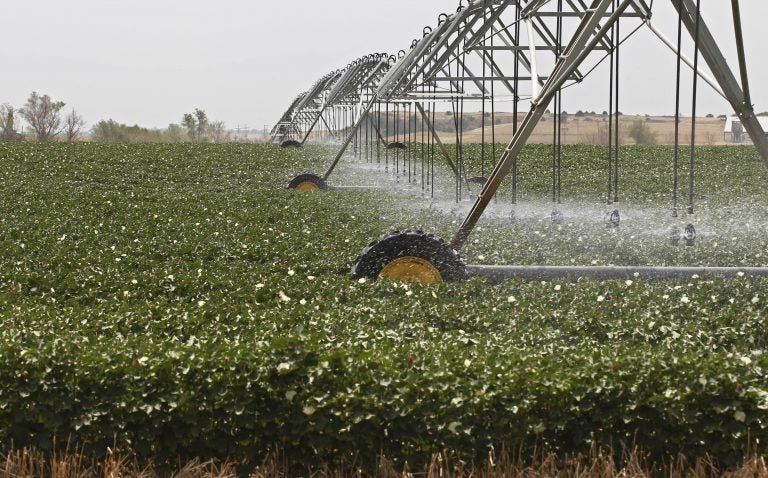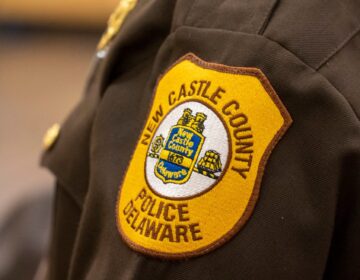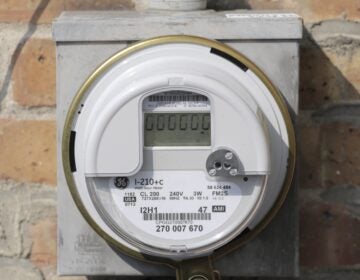Delaware accuses chicken giant of polluting water
Mountaire Farms is accused of 13 violations of its permits to spray treated wastewater on fields in Millsboro, Delaware.

(Sue Ogrocki/AP Photo)
Mountaire Farms is accused of 13 violations of its permits to spray treated wastewater on fields in Millsboro, Sussex County.
The chicken processor is accused of exceeding legal limits for pollutants in water that is sprayed on fields in southern Delaware. Higher-than-allowed levels of fecal coliform, chlorine, and nitrates were found on multiple occasions from April through September, according to a violation notice filed this month by the Department of Natural Resources and Environmental Control.
By August, Mountaire had already exceeded the total amount of nitrogen it was allowed to apply to its farm fields for the whole year. “Reporting through August shows nine out of 13 fields have already exceeded the limit for the calendar year 2017,” the violation notice said. “August’s report alone showed six fields were loaded in excess of the [annual] permit limit just in the month of August.”
Mountaire also overapplied the amount of fecal coliform it was permitted to spray on fields by huge margins in August. The violation notice shows that, on Aug. 31, the fecal coliform levels were at 1.1 million colonies per 100 ml, way above the allowed level of 200 mg/L.
As a result of the violations, nitrogen levels in nearby groundwater exceeds drinking water standards. DNREC is providing residents nearby with bottled water.
The pollution levels are shocking, said Chris Bason, executive director of the Center for the Inland Bays. “It’s unfortunate because the Indian River and some nearby creeks and streams are going to be receiving all that pollution and they are already in bad shape, they are highly polluted rivers.”
Mountaire’s impact on the water isn’t a new development, according to DNREC. “Groundwater monitoring wells have consistently exceeded the drinking water standard … and have shown no improvement since Mountaire acquired ownership of the facility in 2000,” the violation order said.
Bason said it appeared the pollution was brought under control at some point in the past year, but that’s changed now in light of this violation. “It was shocking the amount of nitrogen that was being applied to those fields, and I guess that was resulting from the operations failure at the facility … and there are many other problems out there as well.”
In addition to the worries over drinking water quality, Bason is concerned about the impact on other uses of the Indian River and other water further downstream.
“There’s an important recreational blue crab fishery there, there’s a hard clam fishery, oyster aquaculture is just getting started in the inland bays,” Bason said. “There’s like 60,000 registered boats in Delaware, and most of them use the inland bays. So it’s a very important resource that’s getting polluted here.”
The DNREC violation notice requires Mountaire to submit a corrective action work plan to detail how the company will reduce the pollution and impacts to the water.
WHYY is your source for fact-based, in-depth journalism and information. As a nonprofit organization, we rely on financial support from readers like you. Please give today.





